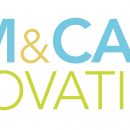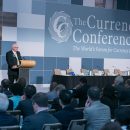Freedom of Choice in Payments – a Right for All?
With the world’s eyes currently focused on London and the 2012 Olympic Games, two recent but unconnected events have underscored the freedom that the public traditionally enjoys to make payments for goods and services, and the backlash that threats to such freedom provoke.
First was an announcement by a UK government minister that paying small traders for services with cash is immoral since it is a means of tax evasion and encourages a black market. The minister’s remarks were immediately slapped down by several of his colleagues, the Prime Minister included, all of whom stated that they frequently pay for such services in cash, and that there is nothing wrong in doing so provided that it is not done for financial gain.
This was the usual storm in a teacup in the proverbial summer ‘silly season’ for news. But it did trigger extensive coverage about the freedom to pay for goods and services in whatever manner individual choose, and also the benefits of cash relating to immediacy and cost – in particular, the fact that small tradesmen can neither afford to wait for cheques to clear nor carry the cost of taking card payments.
Freedom of payments choice has also come to the fore over the 2012 Olympics Games. Amidst all the hype in the run-up to and opening of this event, a discordant note has been struck by the protection of the commercial interests of the sponsors, and the draconian measures, enshrined in law, that can be taken against any organisation or individual that attempts to take advantage of the brand, even down to the use of ‘2012’ (itself the designated property of the International Olympics Committee).
One of the main sponsors is Visa, the sole provider of card payment services – whether for buying tickets, merchandise, food and drink or accessing cash within the Olympic venues. According to the Sunday Times – the UK’s most widely-read quality Sunday newspaper – it is the sponsor that emerges as early favourite for the gold medal in mean-spirited pettiness. Anyone attempting to buy tickets online could only do so with a Visa card. Ditto merchandise in the various London 2012 stores. Every commercial venue and ATM within the various venues, meanwhile, bears a sign saying it is ‘proud to accept only Visa’.
They may be proud, the newspaper noted, but everyone else will simply be annoyed. Particularly when, at one of the main venues, Wembley Stadium, the system crashed for three hours and no-one was able to buy any food or drink. Unless, of course, they had cash….and many did not, for they had followed the official advice, left their cash behind and brought only their Visa card.
The sponsors of the Games provide 40% of the event’s income (nearly $1 billion between 2009 and 2012) and no-one can argue against the need for their investment to be protected. But should this be at the expense of the fundamental right of people to decide how and by which method they are parted from their money? We think not.
The heavy-handedness of the International Olympics Committee is somewhat ironic given the importance it attaches to inclusivity and being open to all (a point that was greatly emphasised during the spectacular opening ceremony). Clearly, commercial interests transcend such lofty aims. And it is doubly ironic that at Wembley, for those who had ignored Visa’s advice, it was cash that saved the day! Crosshead: (Visa) is the sponsor that emerges as early favourite (at the London Olympics) for the gold medal in mean-spirited pettiness.










